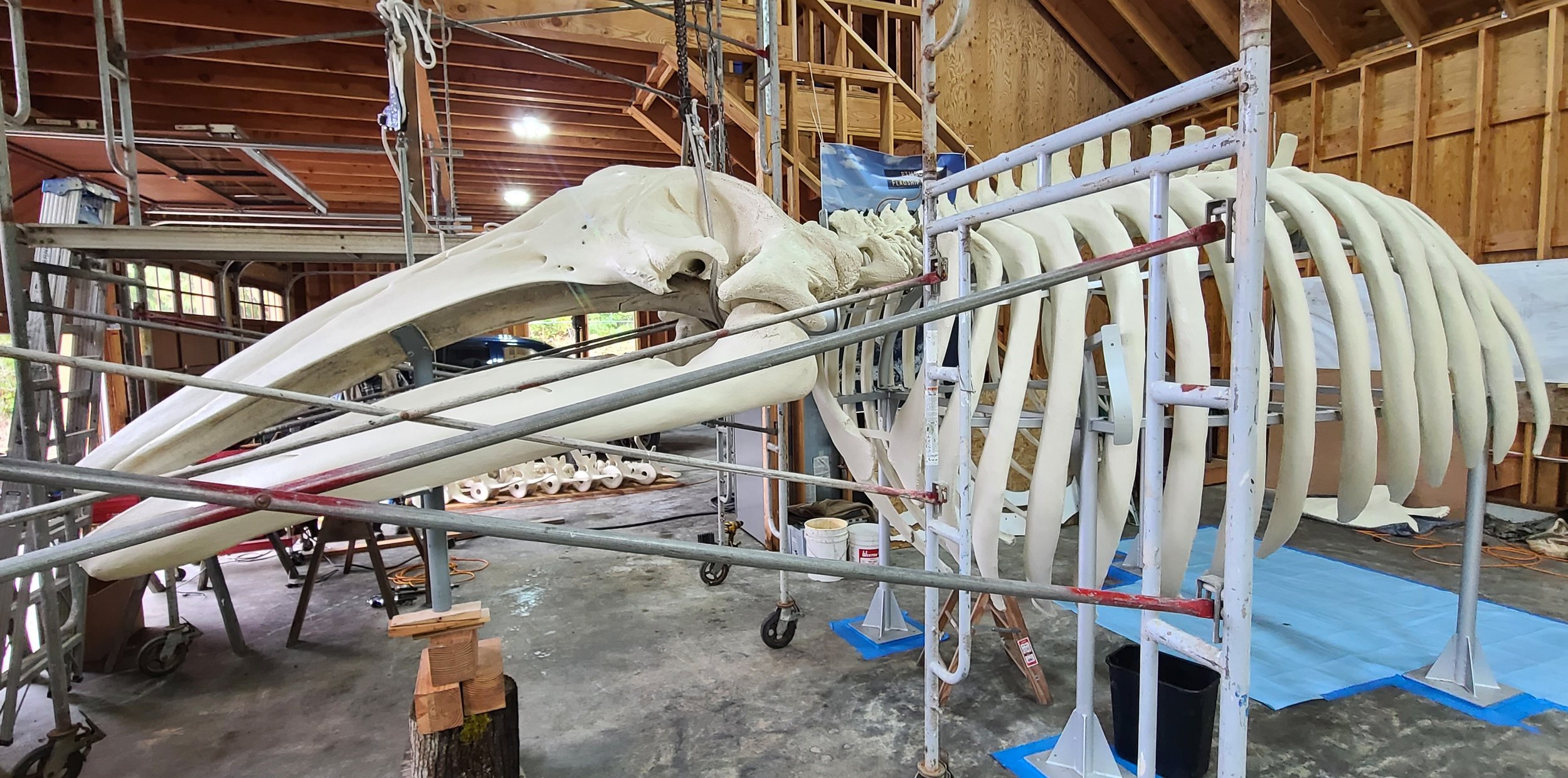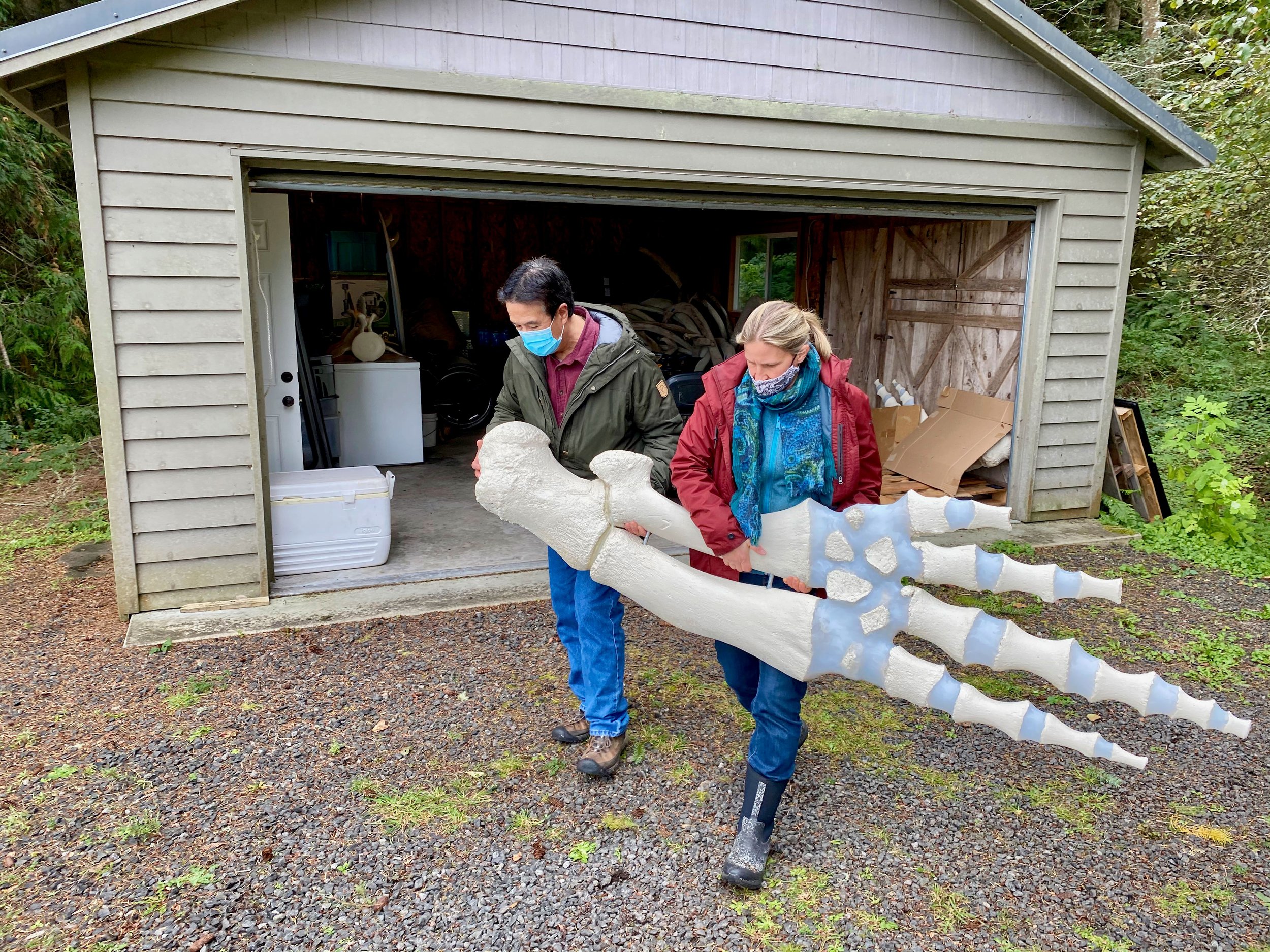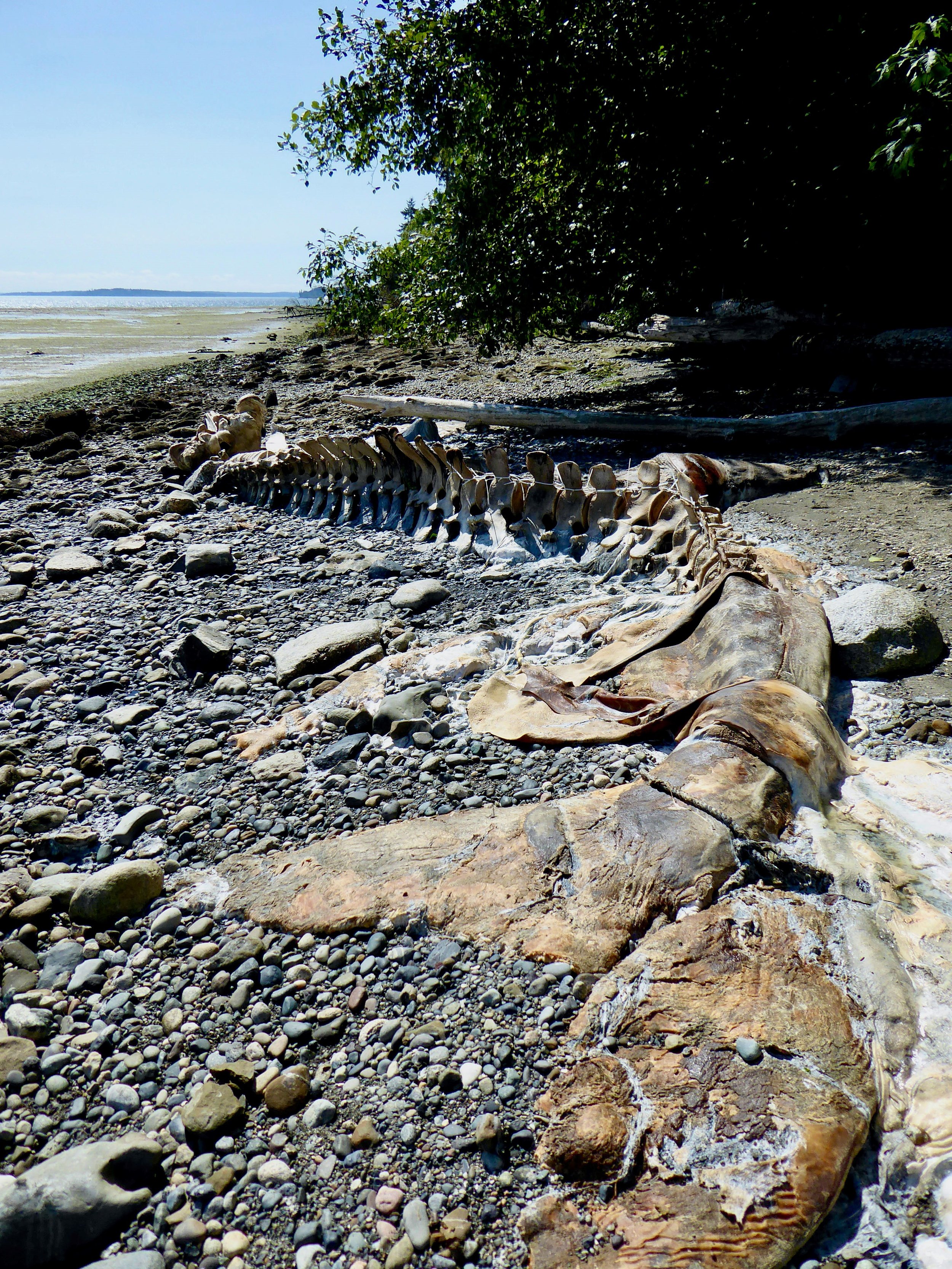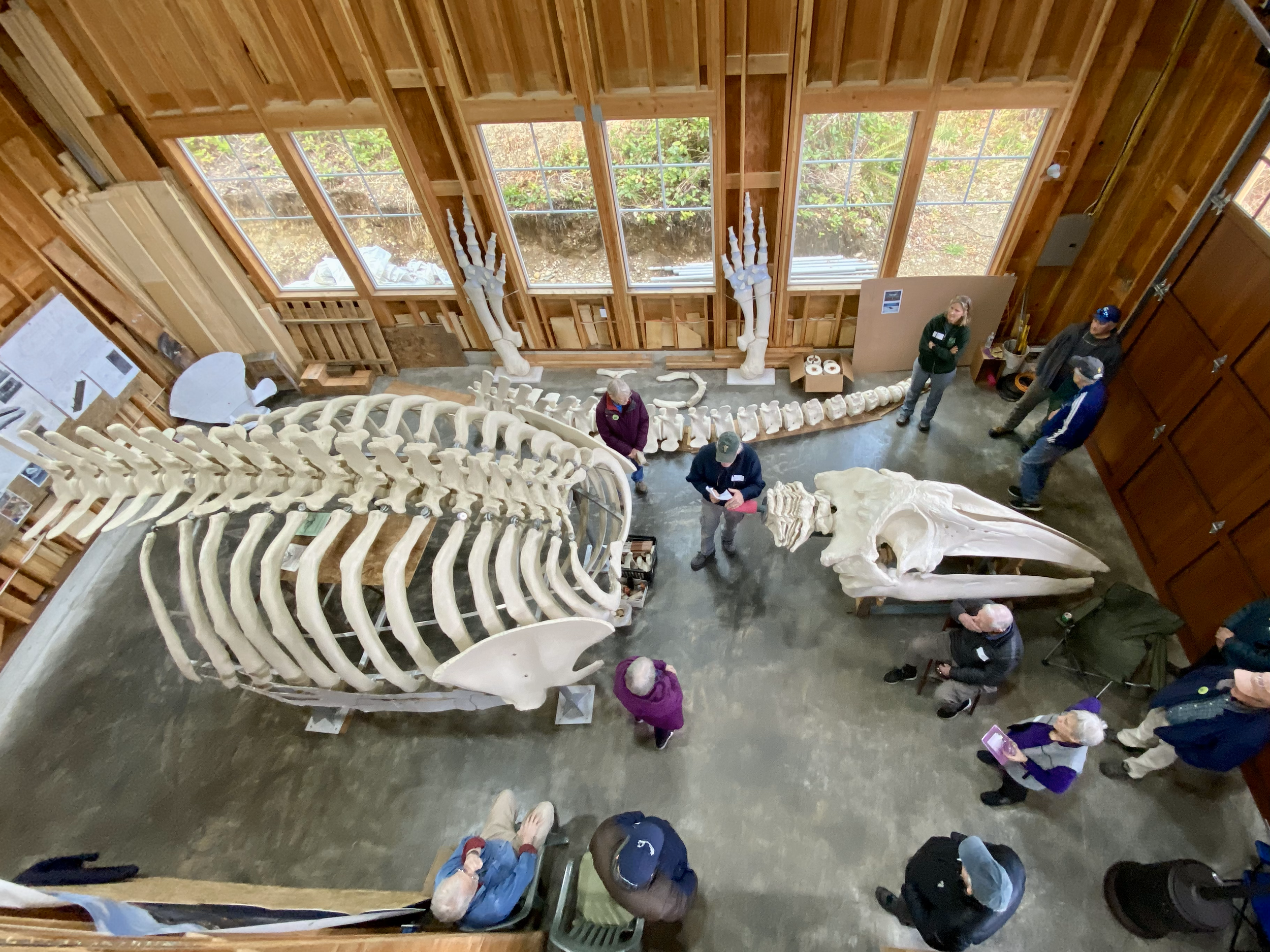July/August Beans For Bags Spotlight: Port Townsend Marine Science Center
Bones and What They Can Teach Us
What is it about bones that endlessly fascinate us? Perhaps it is their stunning beauty, or mystery, or that they can tell a story.
Such is the case with a 42-foot skeleton of a gray whale that the Port Townsend Marine Science Center (PTMSC) will install on Union Wharf in downtown Port Townsend this summer (should be installed by Aug 15th). The story behind these bones started with a stranding during a UME (unusual mortality event) involving hundreds of gray whales in 2019.
A team of PTMSC volunteers were on the ready to respond to the stranding, assisting with the necropsy (autopsy for animals) and helping to collect data and critical information. This data is reported to NOAA so that we can better understand the reason for the UME and learn about the changing conditions of our global ocean as the impacts of humans and climate change affect habitats.
After collecting the data, the question of what to do with the giant carcass was puzzling the neighbors. Luckily two of the volunteers, Stefanie Worwag and Mario Rivera, offered their beachfront property in Port Hadlock. The carcass was towed to their relatively secluded beach and allowed to decompose. Stefanie, a retired veterinarian of dogs and cats, was fascinated as she watched the skeleton emerge.
The idea of volunteering to allow a dead whale decompose on your property caught the fancy of national news media and the story went viral, culminating in a mention during the “Meanwhile” segment of The Late Show with Stephen Colbert.
Why on earth would Stefanie and Mario put up with the stink? Well the answer is at the heart of the PTMSC mission. For over 40 years, PTMSC has fostered curiosity and nurtured the human instinct to investigate and explore our world. Sometimes this exploration is messy. And sometimes it stinks. But it is alway wondrous and awe-inspiring.
But more than wonder and awe, PTMSC is about learning so that we can make better decisions and take collective action. The citizen science program is one of the oldest in the country and helps policy makers save lives, protect habitat, and restore species that are going extinct, such as the native pinto abalone.
We hope that the breath-taking skeleton that you will see appear on Union Wharf this summer, will remind you of what the precious sea has to teach us and how important it is to protect and care for it so that our friends, the gray whales can continue to enjoy this home.
To learn more about what the PTMSC is up to and what program they have running, please visit their website at: https://ptmsc.org/ or follow them on Instagram: @ptmarinescictr






